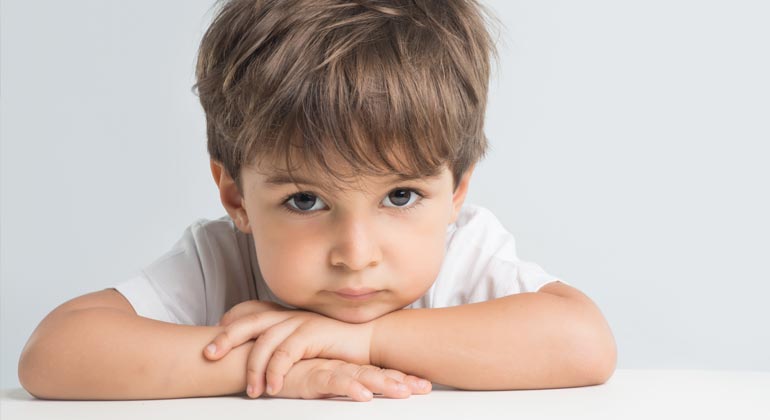Sorry Seems to Be… the Easiest Word

With the first weeks of school behind us and the temperatures starting to cool, we are immersed in the contemplative mode of the High Holidays. This is meant to be a time of deep reflection as we acknowledge our wrongdoings and seek forgiveness from those we may have hurt in the past year. As a consummate lover of 70s and 80s music, I find myself at this time of year turning the words of Sir Elton John and Peter Cetera over in my head: “Sorry seems to be the hardest word,” and “It’s hard for me to say I’m sorry.” The other side of my brain, however – the early childhood social worker side –says frankly, fellas, I just don’t buy it.
To me, it seems that in our fast-paced, instant-gratification-seeking society, “I’m Sorry” has become little more than a shallow attempt at a “quick fix” when we hit a bump in the road – a bump in the form of another human being. Think about it: we have all been on the receiving end of an apology that felt a bit empty or insincere. What’s more, we’ve probably muttered a quick “I’m Sorry” when we didn’t really feel we were in the wrong. Likewise, young children don’t always feel remorse for the things that we think require an apology, nor do they necessarily understand what feeling sorry means. Why, then, do we quickly insist that the child who grabs a toy, bites his friend, or pushes her sibling utter those words?
True repair happens only when we consider how our actions have impacted another, understand and appreciate that person’s feelings, and take concrete steps to help him or her feel better. Yet, this sort of introspection and compassion—which can be challenging at times for many adults—reaches beyond young children’s natural developmental capacities. How, then, do we go about raising caring, compassionate children who can take responsibility for their actions and effectively repair their relationships in deeper, more meaningful ways?
Model Remorse and Forgiveness
You can show your child that the thoughts and feelings of others matter by acting with genuine compassion and sincerity in your own relationships. Model remorse and forgiveness by:
- Admitting your own mistakes and sharing how you will handle things differently next time.
- Setting clear expectations and consequences to unacceptable behaviors, and demonstrating forgiveness when an incident has been resolved.
Facilitate the Reflective Process
The next time your child does something that you think is inappropriate, help him show compassion and discover alternative ways of making amends by:
- Restating what happened, if you saw it take place (e.g., “You pushed your friend”).
- Encouraging him to look at the injured child and identify how that person feels (if he is unsure, suggest that he ask the child, “How did that make you feel?”).
- Asking your child, “What do you think you can do to help him/her feel better?” and offering suggestions like getting a band-aid, finding an ice pack, giving a hug, or helping to rebuild/repair something that was ruined.
- Helping your child carry out the appropriate caring behavior.
- Acknowledge the attempted repair, whether or not it is successful in the end. Remember, it takes courage to admit when we are wrong! Recognize your child for their effort to do the right thing, focusing on the process rather than the outcome.
As we know, toddlers and preschoolers see themselves as the center of the universe and are unable to take on the perspectives of others. Just as we have spend time over these weeks reflecting on our own shortcomings and restoring our spiritual wholeness for the New Year, we must also support our children in embracing their own missteps as valuable opportunities for growth and learning. By helping your child go beyond saying “I’m Sorry,” you begin to foster within them a sense of empathy, responsibility, and empowerment in their relationships. So this year, I invite you to ponder the words of a more contemporary musical icon, Blake Shelton, who says, “Sometimes sorry just ain’t good enough.”
Book Recommendations
- Lilly’s Purple Plastic Purse by Kevin Henkes
- David Gets in Trouble by David Shannon
- The Forgiving Lion by Efrat Haddi
By Jen Streicher, MS, LCSW
Early Childhood Social Services, JCC Chicago






